Rural Women in Uttarakhand Believed Menstruation Was God’s Curse. Till an Engineer Broke the Taboo
“People there believe that menstruating women have a follow a lot of traditions, which when broken can anger the Gods.”

“I have always been involved in many socially-relevant projects, and will want to do the same in the future as well. I volunteer and take up projects whenever I get time during the week and weekends, but I also always wanted to go the whole nine yards at some point,” says Brindha Nagarajan.
A 26-year-old engineer working as a business consultant, Brindha came across the SBI Youth for India Fellowship last year and the vision of the fellowship interested her right away. A 13-month-long programme, the fellowship gives young people in India an opportunity to work on rural development projects.
She believed this was the perfect chance for her to get out there and work at the grassroots level—and she turned out to be right.
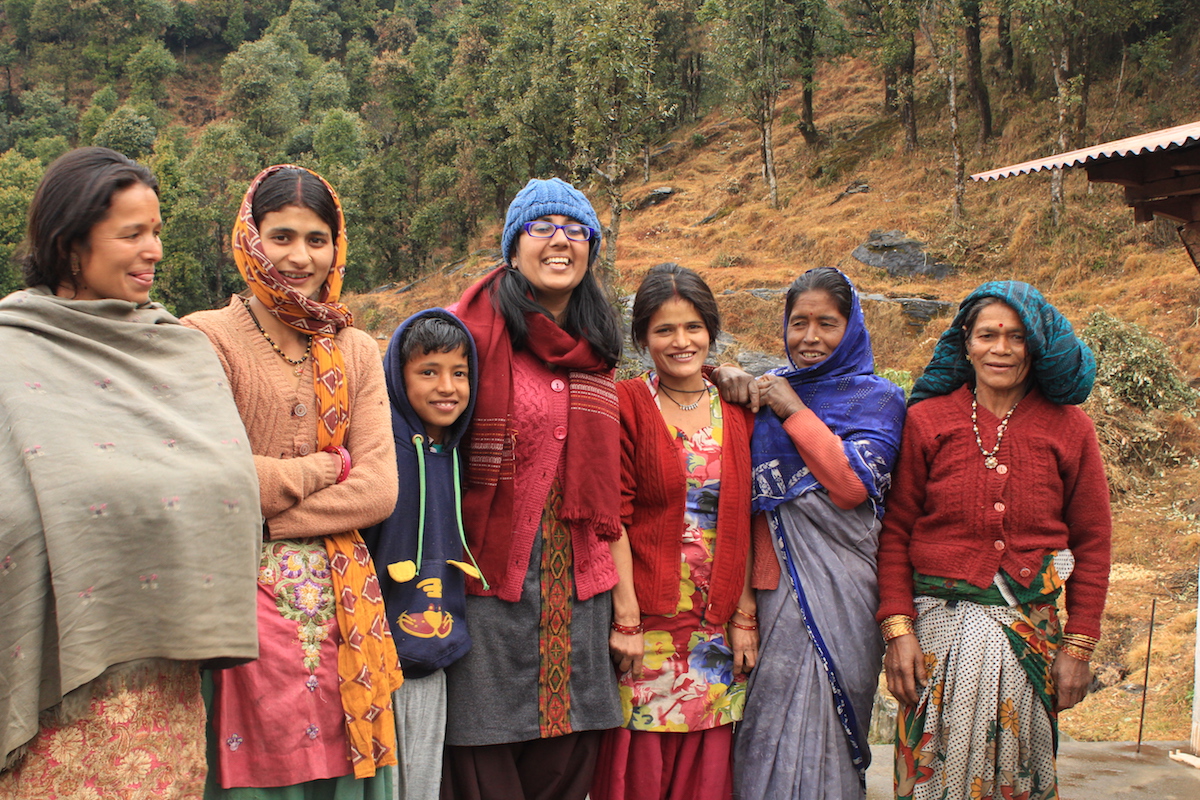
The fellowship took Brindha to Pithoragarh and Bageshwar districts of the Kumaon region in Uttarakhand. Most villages involved in her project were about 300 km or seven hours away from the nearest town, Haldwani. With roads being the only means of accessing the town, the districts were extremely remote. Most of the villages had no roads and could be accessed only by trekking.
While she didn’t reach her destination with any ideas or a fixed mindset about the kind of project she’d like to take up, Brindha was sure that she wanted to work in the area of women empowerment. Coincidentally, within a few days of staying in the first village, she came across a disturbing reality.
She found that in most villages in the region, menstruation was strongly tied to the fabric of society and women were held back with many superstitious beliefs, traditions and rules associated with it.
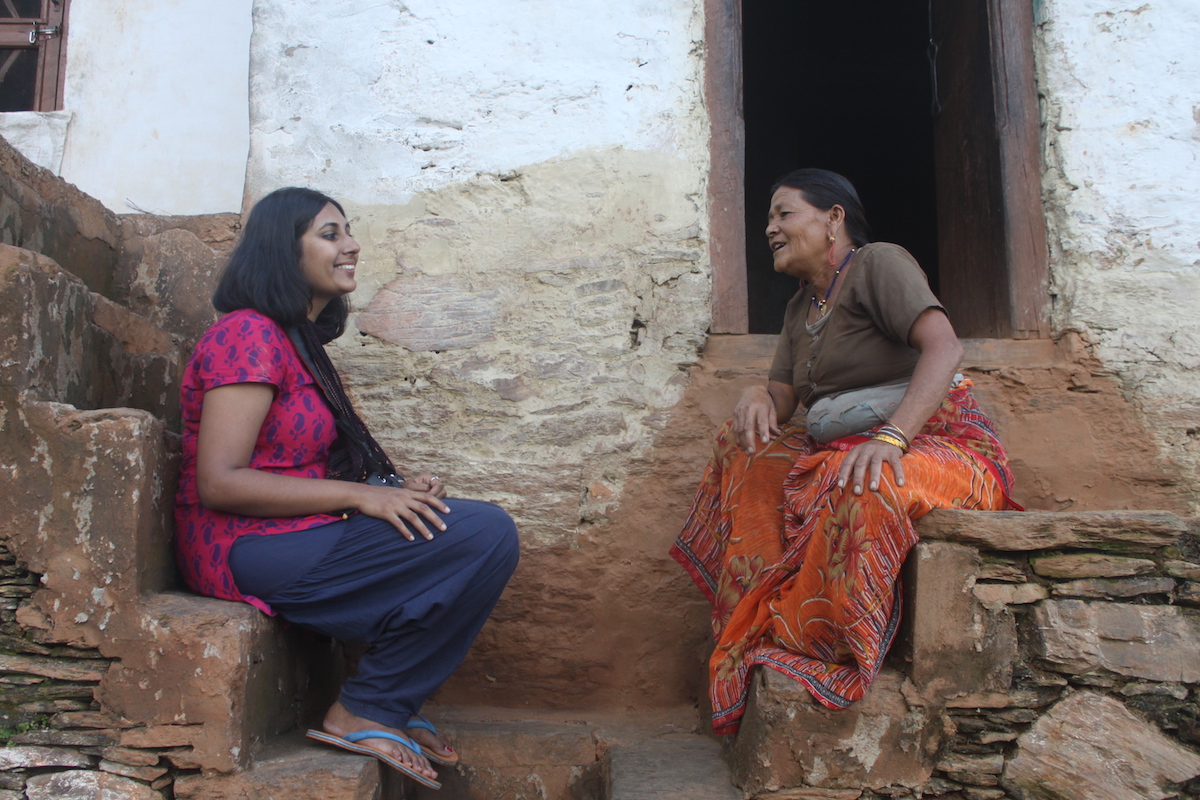
“People there believe that menstruating women have to follow a lot of traditions, which when broken can anger the Gods and lead to things like natural calamities, leopard attacks, etc.,” she says.
Interested in applying for the SBI Youth For India Fellowship? Applications are open till June 9, 2017
Unable to view the above button? Click here
Menstruating women in the region are required to sleep in cowsheds for 5-7 days and eat from separate plates. They don’t touch anyone while menstruating. During their first period, girls are not allowed to look at the male members of the family. It is said that if a menstruating woman touches a person or gives him/her food, the person might fall sick.
Also read: Meet the Chennai Woman Who Helped Revive Herb Farming & Empowered Farmers in a Uttarakhand Village
The women cannot even touch the river water and needs another person to fetch this water for her. Women should also not bathe for the first three days. They are not allowed into or near a temple and are also barred from religious ceremonies. On the sixth day, many women have to sprinkle cow’s urine on themselves for purification.
This was a cause of great inconvenience for women, from the perspective of hygiene as well as their psychological development. Brindha found that due to various reasons like poverty and geographical isolation, women did not have access to sanitary products. Most of them used old cloth and rags, and there were some who didn’t use any product at all.
Brindha decided to take up this issue and help villagers understand and adopt menstrual hygiene management practices. She found three ways to look at the solutions:
Spreading awareness about the biological process behind menstruation:
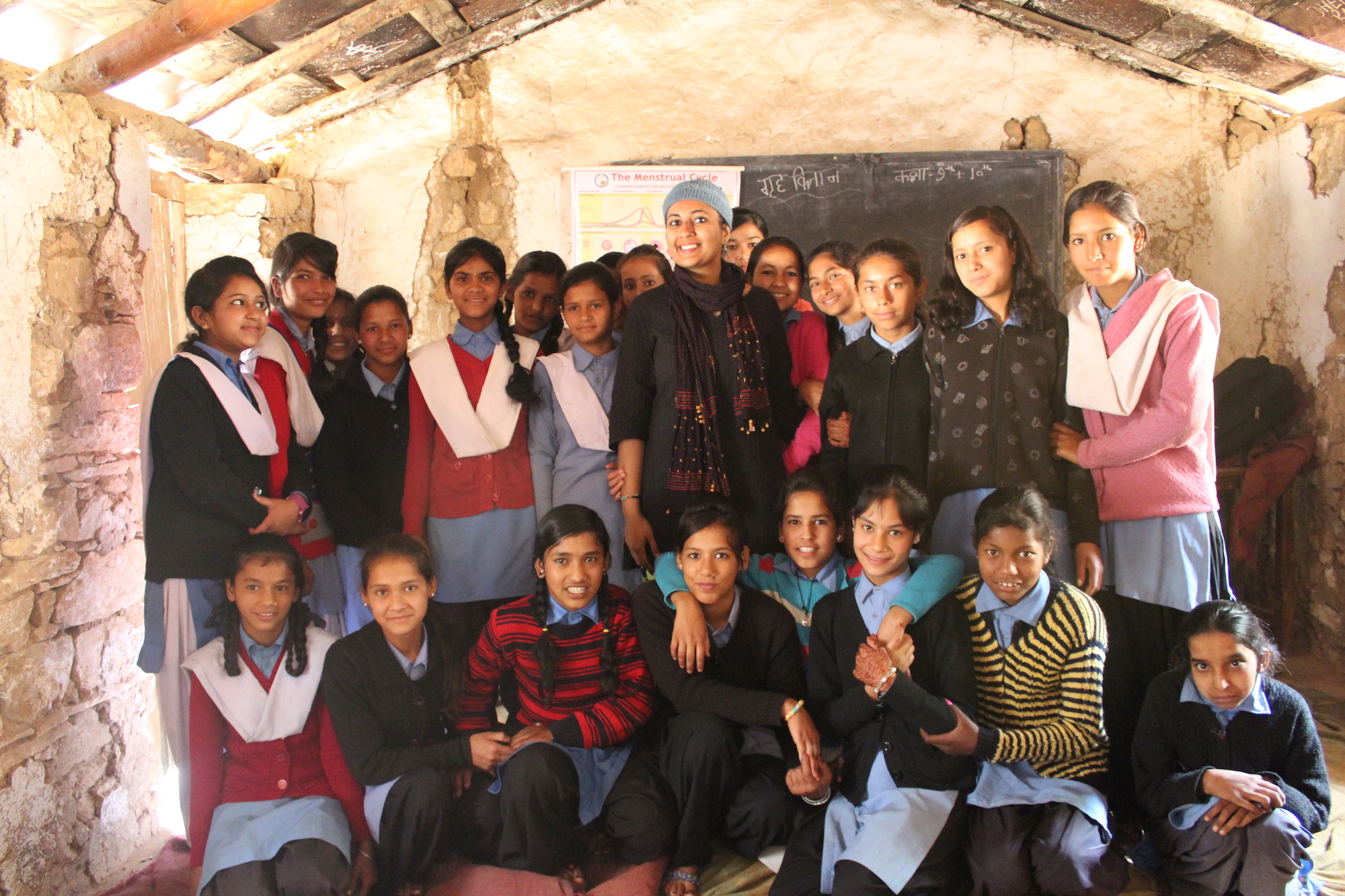
After an informal survey among women in the region, Brindha found that 80 per cent of them believed that menstruation is a curse of God. They had no idea about the biological process behind it.
She started off with awareness sessions by organising village meetings in collaboration with local health workers. She then went on to schools, where she conducted awareness sessions with ice-breaking activities, video tutorials on importance of health, gender, menstruation, etc. “All of this would be in context to a girl living in the mountains so the girls would find it relatable,” she says.
In a region where menstruation is such a taboo and speaking to people about it extremely overwhelming, the entire process involved building personal relationships and making people comfortable. Over 1,000 girls were impacted through these sessions held in multiple schools. Even today, Brindha gets text messages or calls from the girls whenever they get signal on their phones, asking about menstruation or any other doubts they have.
Cloth pad making enterprise:
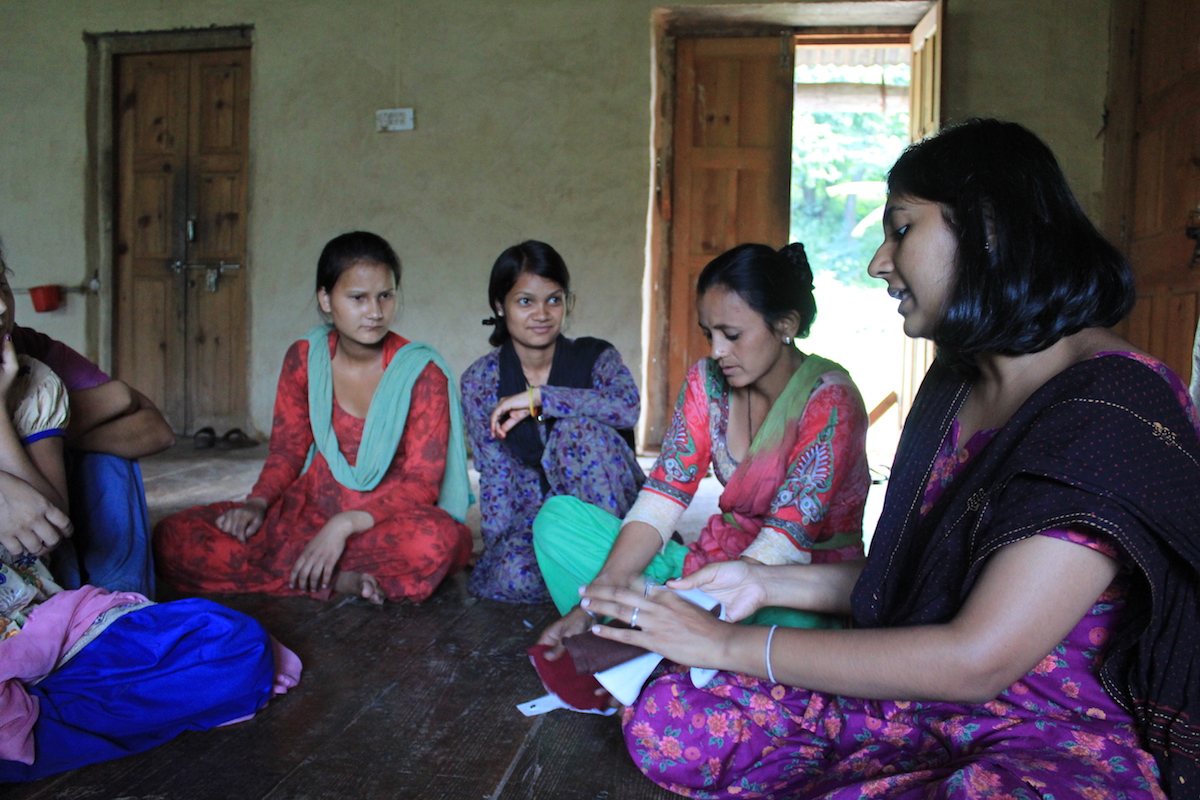
Disposable sanitary pads were unavailable locally so women had to trek to the nearest town to purchase one. Brindha wanted to bring in more menstrual hygiene product alternatives so women would have options to choose from. She started a small, local and sustainable enterprise called Mahila Enterprise to get cloth pads made for women. A local woman named Kamala Ji was appointed to run the enterprise.
Kamala was chosen because of her weak financial background.
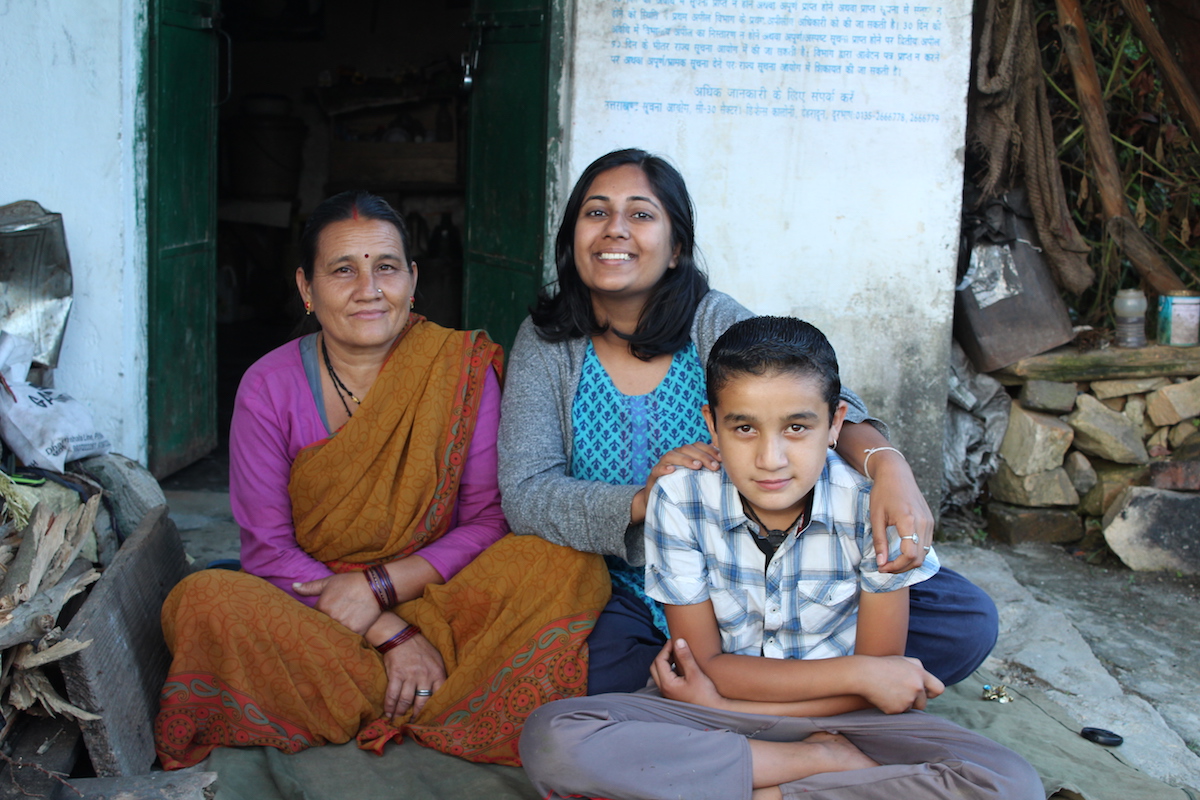
She was the poorest woman in the village, had an abusive husband, and was providing for herself and her son alone. Brindha trained her on making reusable cloth pads.
“Many times, women would use random cloth and they didn’t follow any procedures while washing and drying them. I chose cloth pads as a bridge between cloth and sanitary napkins. The idea was to deliver pads that were tailor-made for the women’s requirements,” says Brindha.
Today, these cloth pads are sold in the villages, each pad priced at ₹30. Avani, a local NGO that Brindha was working with at an organisational level during her fellowship, is now helping Kamala with marketing and sales, and the proceeds from sales go directly to her. The raw material is sourced from Gujarat and Brindha invested her personal savings along with contributions of her friends and family members to purchase a sewing machine for Kamala to use
Sustainable awareness on menstruation with books:
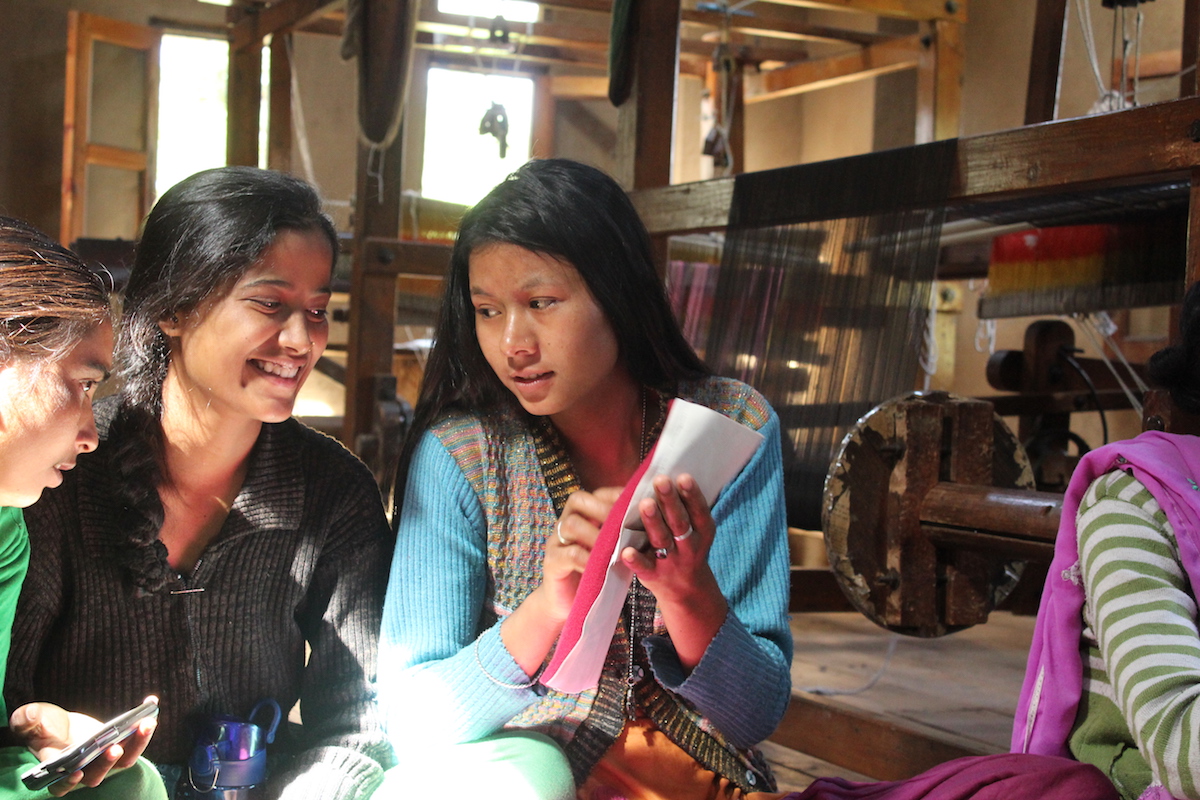
The situation in the village was such that adolescent girls could not talk to their families or elders to understand the process of menstruation. There was no safe place for them to do so. Hence Brindha came up with The Little Book of Growing Up, a comprehensive 30-page illustrated book covering the basics of menstruation.
Also read: This Former Engineer Is Introducing Rural India to Cost-Effective and Eco-Friendly Toilets
This book was specifically written keeping the rural audience in mind and was printed in both English and Hindi. This book has now been made open source so that others working in this field can also utilise it
Thanks to Brindha’s efforts, over 1000 adolescent girls and 80 women have participated in menstrual awareness workshops in a year. At least 100 pads were made and sold in the local villages and 100 women are now using cloth pads.
“Before the workshop, I always thought I was impure and dirty. Now I feel happy knowing that periods are not a curse of God,” concludes 15-year-old Mamta, a resident of the region.
‘SBI Youth for India Fellowship’, an initiative of SBI Foundation provides a platform to the urban youth to participate in Rural Development with their innovative ideas to address the rural struggles and also benefit from the learnings through on-ground experience.
Interested in applying for the SBI Youth For India Fellowship? Applications are open till June 9, 2017
Unable to view the above button? Click here
Like this story? Or have something to share? Write to us: [email protected], or connect with us on Facebook and Twitter.
NEW: Click here to get positive news on WhatsApp!

Similar Story

Would Your Parents Support You Taking Therapy? This Mental Wellbeing Survey Reveals an Unseen Change
An ITC Fiama survey on mental health shows 80% of Indians trust their parents to back them in seeking therapy, signalling a change in how its perceived by Gen Z, millennials, and their parents.
Read more >
If you found our stories insightful, informative, or even just enjoyable, we invite you to consider making a voluntary payment to support the work we do at The Better India. Your contribution helps us continue producing quality content that educates, inspires, and drives positive change.
Choose one of the payment options below for your contribution-
By paying for the stories you value, you directly contribute to sustaining our efforts focused on making a difference in the world. Together, let's ensure that impactful stories continue to be told and shared, enriching lives and communities alike.
Thank you for your support. Here are some frequently asked questions you might find helpful to know why you are contributing?


This story made me
-
97
-
121
-
89
-
167












